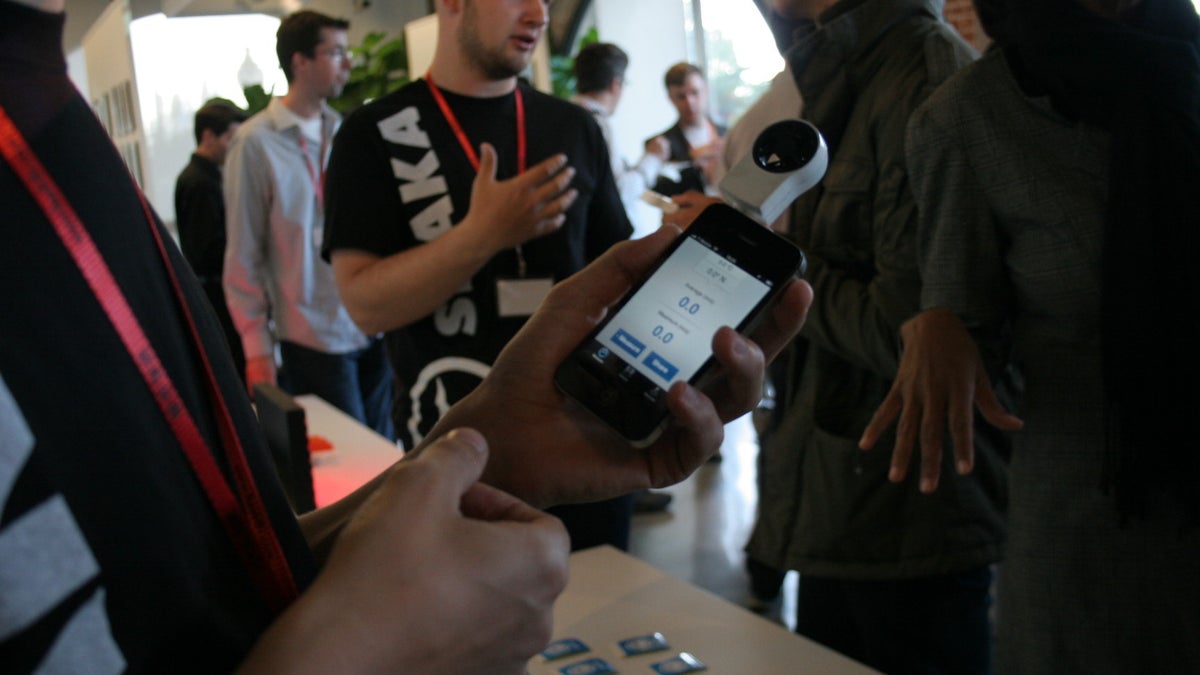Geeking out on hardware is not just about robots anymore
Hardware accelerator program HAXLR8R debuts nine products, including mind control headband, kitchen gadgetry and a wind sensor for riding waves.

What do you get when you stick a bunch of geeks from all around the world in an hardware-focused incubator program for 111 days?
Well, you still get robots (which are pretty cool), but with the HAXLR8R hardware-related accelerator program, you also get young people who are excited about nearly every facet of life.
The program's demo day in San Francisco on Monday night highlighted several new products that consumers can literally get their hands on. This included some products you would expect from really smart people interested in hardware like:
Bilibot, a robotic platform designed to make affordable robots that can go up to 6 mph and carry up to 200 pounds. These are the droids you were looking for.
Makeblock, a new construction platform. Think Legos or Erectors but stronger and with more versatility. The presentation included images of a person making a small beer carrying robot that was controlled by a smart phone.
Axio, an EEG headband that monitors focus and neuro feedback to improve your brain's performance. Or as the creators characterize it, its helps you "get in the zone."
Sassor, a device and monitoring dashboard that allows small offices and restaurants to manage their energy consumption by showing them how much they use. This Japanese company focused on energy consumption because last year's 9.0 magnitude earthquake in Japan left the country strapped for power.
Portable Scores, a portable electronic scoreboard that was dreamed up during a game of ping pong where no one could agree on the score.
There were also a few products I did not expect to see:
Shaka, a wind monitor that plugs into your smartphone. The device turns the phone into a portable wind meter, allowing wind activity enthusiasts -- think windsurfers and kite fliers -- to know what conditions they face. Shaka also features social sharing and push notification, so if your friends find good conditions for an outing, you'll know exactly where to go to partake in the recreation. This company has big ideas, hoping to expand the device, which has a suggested retail price of $59, to other markets like golfers and professional industries.
Nomiku, an immersion circulator used for a cooking technique called sous vide, which uses precise heating to cook dishes. The device is for a consumer market and attaches to any existing pot, which makes it portable, unlike similar consumer products. The device's prototype was born after the creators watched Top Chef in their apartment and used duct tape and an aquatic bubbler to satisfy their foodie cravings. Retailing at $299, Nomiku aims to fill a gap in the pricy consumer market.
Two other companies, Loccie, an online activity search tool that's aimed at the adventurous, and Kindara, an iPhone app that helps women with fertility planning, were a little less hardware-geared but no less creative. Loccie comes with a GPS device used to locate activities with a "hot and cold" system, while Kindara is working on developing a thermometer that connects with the iPhone for easy temperature taking, an important component of monitoring a woman's ovulation cycle.
It just goes to show that it doesn't matter what kind of geek you are, you can build some pretty remarkable -- and potentially profitable -- things.

